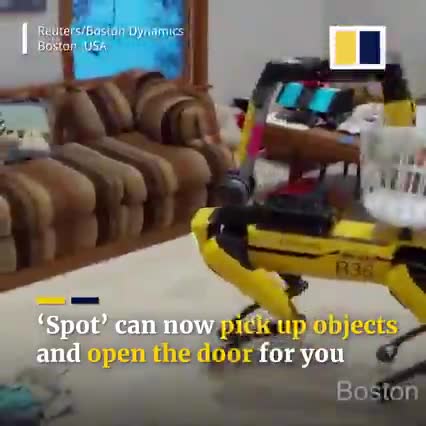“Spot” the robot dog can now pick things up, open doors, charge itself … and dance.



Is a postdoctoral scholar at Tufts University, where she conducts research in their Human Robot Interaction Lab (https://hrilab.tufts.edu/).
With a background in psychology and the social sciences, Dr. Chita-Tegmark is interested in topics at the intersection of technology and psychology, such as using artificial social agents in healthcare and the impact of such emerging technologies on human social interactions and well-being.
Dr. Chita-Tegmark has her Ph.D from Boston University in Psychology and Developmental Sciences, and she is an alumna of the Harvard Graduate School of Education, where she spent time studying role of social information in children’s lives, how social information influences the way children cooperate and engage in strategic decision-making, as well as on projects related to the development of social attention and language skills in children with Autism Spectrum Disorder (ASD).
Dr. Chita-Tegmark is also a Co-Founder of the Future of Life Institute (https://futureoflife.org/), a non-profit research institute and outreach organization that works to mitigate existential risks facing humanity, including those from advanced artificial intelligence (AI), to bio-engineering, to autonomous weapons, and to help promote positive uses of technology.

Unsurprisingly, artificial intelligence is a small part — albeit an important one — of a successful product management strategy.

OEC promoting STEM education in Africa.
If we know a protein’s structure, we can make educated guesses about its function. And by mapping thousands of protein structures, we can begin to decipher the biology of life.

Recent advances in the field of robotics have enabled the fabrication of increasingly sophisticated robotic limbs and exoskeletons. Robotic exoskeletons are essentially wearable ‘shells’ made of different robotic parts. Exoskeletons can improve the strength, capabilities and stability of users, helping them to tackle heavy physical tasks with less effort or aiding their rehabilitation after accidents.

